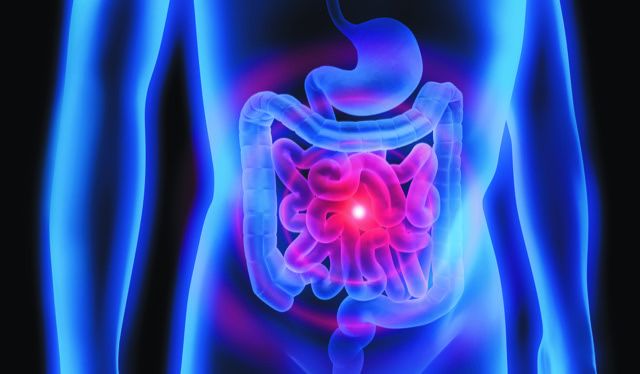We’ve all had stomachaches, and most of us have experienced gastrointestinal symptoms like gassiness and bloating, heartburn, constipation, and diarrhea at some time. When should we seek treatment for symptoms like these, and when is it okay to wait them out or try to treat them ourselves?
Bad Belly. Short term bowel changes and/or abdominal ➧ Treat Yourself. It’s fine to try over-the-counter products like antacids, anti-gas products, and fiber supplements, as long as symptoms are mild and not chronic. ➧ Know When to Seek Help. See a health-care professional immediately if you see blood in your stool, have trouble swallowing, are losing weight without trying, or have symptoms that are getting worse or not going away. ➧ Don’t Worry. Most gastrointestinal problems, like gas, a “stomach bug”, food poisoning, and heartburn are not serious and will go away on their own or with home care. Just be aware that severe pain and changes that don’t resolve could have a more serious origin and should not be ignored.
(belly) pain can have a variety of causes, including food poisoning, a virus, or gas. Food allergies or an intolerance (such as lactose intolerance) and irritable bowel syndrome are possible causes of recurring incidents. But abdominal pain can also be a sign of something critical (such as appendicitis, diverticulitis, or kidney stones) or chronic (like celiac disease, inflammatory bowel disease, or irritable bowel syndrome).
 How bad the pain is does not indicate how serious the disorder is. For example, gas pains can be very painful, and appendicitis may cause only a mild ache.
How bad the pain is does not indicate how serious the disorder is. For example, gas pains can be very painful, and appendicitis may cause only a mild ache.
When to Worry. “If your symptoms concern you, see a health-care provider to get peace of mind,” says John Leung, MD, a gastroenterologist and adjunct clinical assistant professor at the Friedman School. “Signs that definitely require looking into include unexplained weight loss, loss of appetite, persistent abdominal pain, and blood in your stool (which can be bright red or maroon or cause tarry, black stools). Additionally, if you have difficulty swallowing, you should see a doctor immediately.” If you can’t keep anything down and have been unable to have a bowel movement, have a tender or hard belly, have pain that lasts more than a day or two or is getting worse, or have diarrhea for more than five days, seek help.
“I see a lot of patients concerned about foamy or pale stools or mucous in stool,” says Leung. “Stool size, texture, color, or odor changes may worry you, but if you do not have other associated symptoms such as pain, fever, blood, weight loss, or jaundice and you feel otherwise well, it’s fine to wait and see if your stool normalizes.”
What to Do. “It can be difficult to determine what can be dealt with at home and what cannot,” says Leung. “If your symptoms are mild, it’s fine to try some over-the-counter treatments. But if symptoms get worse or don’t get better, I suggest seeing a doctor right away.” Fiber supplements, antacids, anti-gas products, enzyme tablets that help digest dairy, and sports drinks to replace fluids lost with diarrhea and vomiting are some first-line options.
Dietary changes play a role in many short-term abdominal problems, allergies, intolerances, and food sensitivities. If you suspect ongoing issues are related to what you eat, don’t try to make major dietary changes without guidance. “I do not recommend overly restrictive or drastic diet changes,” says Leung. “These can lead to malnutrition and cause more problems long term.”
























